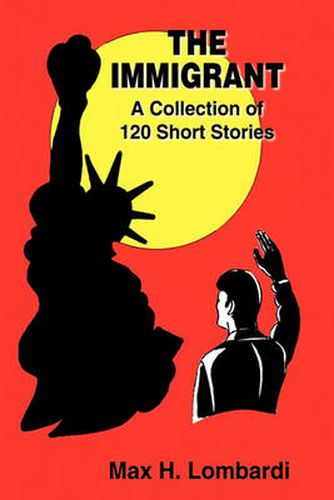Readings Newsletter
Become a Readings Member to make your shopping experience even easier.
Sign in or sign up for free!
You’re not far away from qualifying for FREE standard shipping within Australia
You’ve qualified for FREE standard shipping within Australia
The cart is loading…






This title is printed to order. This book may have been self-published. If so, we cannot guarantee the quality of the content. In the main most books will have gone through the editing process however some may not. We therefore suggest that you be aware of this before ordering this book. If in doubt check either the author or publisher’s details as we are unable to accept any returns unless they are faulty. Please contact us if you have any questions.
Marco Donnatti, the main character in the book, was an immigrant from Peru who came to the U.S. in 1963 with his wife and a baby daughter. The book tells the story of Donnatti’s life and struggles during four decades of hard work while learning to adapt to the American way of life. In an interview with a Los Angeles reporter, he recalls his growing up in poverty in Peru, the dedication of his parents to make him and his brothers and sisters succeed in school, his adventures as a college student and as a soccer player. He then tells the reporter about his earning of a scholarship to do graduate studies at Cornell University and his return to Peru to work as a college professor. He then tells his troubles with the university administration because he dared to claim a legitimate promotion. When his documents were lost, in 1962, he started looking for another job.
A year later, he received a job offer from the Institute of Nuclear Studies of Oak Ridge, Tennessee. He then, secretly, applied and obtained an immigrant’s visa and a green card from the U.S. Consulate in Lima. Thus, in December of 1963, he became the immigrant. In Oak Ridge, Tennessee, he worked diligently in domestic and international radioisotopes training programs for college teachers and physicians.
He also tells the reporter about his becoming a workaholic, his personal life tragedies, and his opinions on life, science, music, philosophy, the economy, climate change, immigration, and his personal approach to preventive
$9.00 standard shipping within Australia
FREE standard shipping within Australia for orders over $100.00
Express & International shipping calculated at checkout
This title is printed to order. This book may have been self-published. If so, we cannot guarantee the quality of the content. In the main most books will have gone through the editing process however some may not. We therefore suggest that you be aware of this before ordering this book. If in doubt check either the author or publisher’s details as we are unable to accept any returns unless they are faulty. Please contact us if you have any questions.
Marco Donnatti, the main character in the book, was an immigrant from Peru who came to the U.S. in 1963 with his wife and a baby daughter. The book tells the story of Donnatti’s life and struggles during four decades of hard work while learning to adapt to the American way of life. In an interview with a Los Angeles reporter, he recalls his growing up in poverty in Peru, the dedication of his parents to make him and his brothers and sisters succeed in school, his adventures as a college student and as a soccer player. He then tells the reporter about his earning of a scholarship to do graduate studies at Cornell University and his return to Peru to work as a college professor. He then tells his troubles with the university administration because he dared to claim a legitimate promotion. When his documents were lost, in 1962, he started looking for another job.
A year later, he received a job offer from the Institute of Nuclear Studies of Oak Ridge, Tennessee. He then, secretly, applied and obtained an immigrant’s visa and a green card from the U.S. Consulate in Lima. Thus, in December of 1963, he became the immigrant. In Oak Ridge, Tennessee, he worked diligently in domestic and international radioisotopes training programs for college teachers and physicians.
He also tells the reporter about his becoming a workaholic, his personal life tragedies, and his opinions on life, science, music, philosophy, the economy, climate change, immigration, and his personal approach to preventive